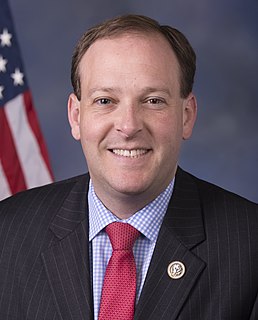A Quote by Frances Perkins
This leads to a question - if a great many people are for a certain project, is it necessarily right? If the vast majority is for it, is it even more certainly right? This, to be sure, is one of the tricky points of democracy. The minority often turns out to be right, and though one believes in the efficacy of the democratic process, one has also to recognize that the demand of the many for a particular project at a particular time may mean only disaster.
Quote Topics
Also
Believes
Certain
Certainly
Demand
Democracy
Democratic
Democratic Process
Disaster
Efficacy
Even
Great
Great Man
Leads
Majority
Many
May
Mean
Minority
More
Necessarily
Often
Only
Out
Particular
People
Points
Process
Project
Question
Recognize
Right
Sure
Though
Time
Tricky
Turns
Vast
Vast Majority
Related Quotes
Down is an incredibly important band to me. And there's one other project that may be a little tough for people to understand - it's not sonically heavy, but subject-wise it's absolutely heavy. It's a band that I've been in for many, many yearsm and I've just been waiting for the right itme, and boy, it sure is the right time. So, yeah, you will hear music from Philip Anselmo again, and it ain't gonna be nothing nice.
Everyone knows that due process means judicial process, and when John Brennan brings him a list of people to be killed this particular week, that's not due process. That's certainly not judicial process. So there's the fifth amendment. Not even George Bush claimed the right to kill American citizens without due process.
Perhaps 25 to 50 years from now, I can design a piece of music, no so that it appeals to something common in millions of people, but I can design the music so that it's exactly right for you and only you at this particular moment for your particular experience, things that have happened to you over 20 years, to you're particular mental state right now.
I think there have to be Bachs and Beethovens. We may have - there are so many more people. Musical training is available to so many more, but it may be that we've hit a right wall in terms of accessible styles and since we demand innovation as a criterion of genius, there may not be more innovative styles to be found.
Even a superstitious man has certain inalienable rights: the right to harbor and indulge his imbecilities, provided only that he does not try to inflict them upon others by force; he has the right to argue for them as eloquently as he can. But he has no right to be protected from the criticism of those who do not hold them. He has no right to demand that they be treated as sacred. He has no right to preach them without challenge.
People don't realize 'Drag Race' is a certain percent competition, but it's also a game show. There's a certain amount of throwing dice and spinning wheels, and there are twists and turns all the time. Part of it is also having the right idea and pulling the right look together that day. We're all making choices in the moment.
For many people, the only reason to do anything is that it's best for them individually. And I think that's why planners have to be more realistic about devising policies so the stakeholders will say, "I see what you mean - that'll help me." I think expecting people to do the right thing for the right reason leads to a lot of failure in public policy.


































